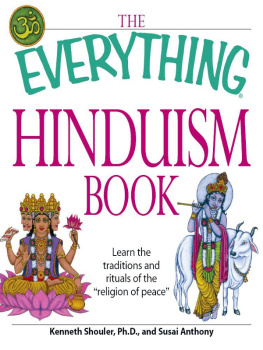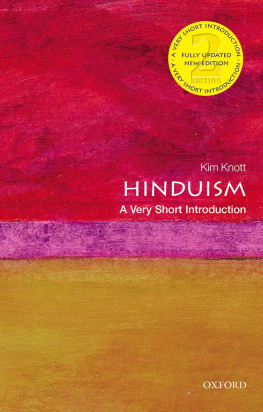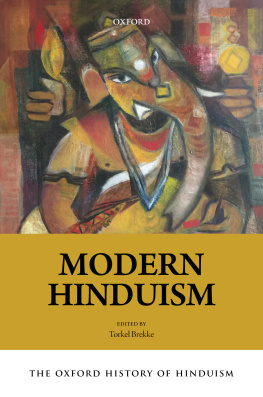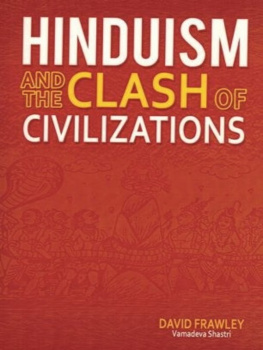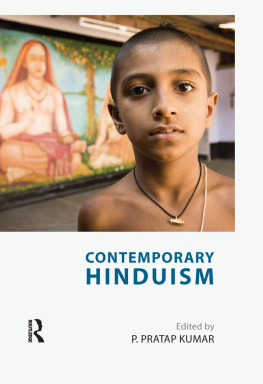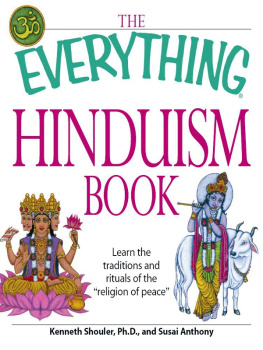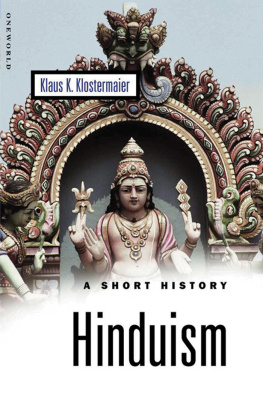REARMING HINDUISM
NATURE, HINDUPHOBIA, AND THE RETURN OF INDIAN INTELLIGENCE
VAMSEE JULURI
westland ltd
61, 2nd Floor, Silverline Building, Alapakkam Main Road, Maduravoyal, Chennai 600 095
No. 38/10 (New No.5), Raghava Nagar, New Timber Yard Layout, Bengaluru 560 026
93, 1st Floor, Sham Lal Road, Daryaganj, New Delhi 110 002
Rearming Hinduism: Nature, Hinduphobia, and the Return of Indian Intelligence
This e-book edition first published by westland ltd 2014
Copyright Vamsee Juluri 2014
All rights reserved
First ebook edition: 2014
ISBN: 978-93-84030-52-0
Disclaimer
Due care and diligence has been taken while editing and printing the book, neither the Author, Publisher nor the Printer of the book hold any responsibility for any mistake that may have crept in inadvertently. Westland Ltd, the Publisher and the printers will be free from any liability for damages and losses of any nature arising from or related to the content. All disputes are subject to the jurisdiction of competent courts in Chennai.
This book is sold subject to the condition that it shall not by way of trade or otherwise, be lent, resold, hired out, circulated, and no reproduction in any form, in whole or in part (except for brief quotations in critical articles or reviews) may be made without written permission of the publishers.
Agnirme vachi sritah
Vagdhrdaye hrdayam mayi.
Isano me manyau sritah
Manyurhrdaye hrdayam mayi.
For some words are born in fire alone.
Contents
Preface
Your Hinduism
You are an achievement.
You may not fully know why just yet. But you have probably felt, in some quiet way, the fact that you belong to something significant that has come before you in history. You might not always know how to express that feeling, but you know that it inspires you, and elevates you.
You belong to the one civilization that still stands much as it once did even after all these thousands of years of human history; thousands of years of wars, conquest, pillage, subjugation, desecration and devastation, thousands of years of supposed progress that have given us a world today that runs on brutal violence against nature, life and the planet itself.
You belong to a civilization that is still standing, but surrounded as it were, by a mess, in India and across the whole world, of environmental devastation, cultural confusion, ethical indifference, and economic insecurity.
But still, it stands. Still, there is hope.
For a civilization is not just buildings and machines, but its people, their thought, and their culture. It is a way of knowing the world, a way of giving meaning and value to the contents of life. It is a resource, most of all, for living intelligently. It is a form of culture, an expression of sensibility, a way of harmonizing science, philosophy, and ethics in a people's every thought, word and deed. You can call it a religion, a way of life, or a civilization, you can call it what you will. But no word will suffice.
A billion people on this earth still call God by the same names that people did thousands of years ago. What exists on this earth unchanged for that long? What religion exists on this earth for that long, when so many people have distorted religion and dragged it down from being about love and freedom to being about hatred, coercion and war?
Hinduism could have been wiped out a long time ago.
*
But it wasn't.
You are here.
You still adore and worship your Ganesha , your Hanuman , your Shiva , Vishnu , Lakshmi and Parvathi , and Rama and Krishna and Subramanya . You still have your name as did your forefathers. And you are able to deal as a friend and equal today with people of many faiths and races. It is an accomplishment unlike any other.
It is not a boast but a fact.
Your culture's existence is a triumph of survival.
Your existence is a triumph of survival.
In you, in your life, is something that should be studied, preserved, and revered like a work of art in a museum. It may be all messy or mixed up, with good and not so good sensibilities ; like how you can see Krishna in an exquisite ancient sculpture and also in a crude animation form. Hindu civilization is like that, all mixed up. But still, its greatest and most sublime elements are still here, and they are in you. These must not be worn lightly.
You must remember.
We came from a world of wisdom we can barely fathom in today's terms.
And we are here, still.
*
We belong to a moment in history when Hinduism is beginning to wake up, if not from a long slumber, then at least a long silence. We did not speak to the world, and to ourselves, as Hindus , in a very long time. For reasons of strategy, and sensibility, we have been modest and easy-going about religion, despite some unpleasant encounters in history with forces to the contrary. For nearly three generations before us, from the time of India's nominal independence in 1947 to the present moment of exuberant hope in 2014, Hinduism has been a religion lived in silence. We prayed, no doubt, and we went to temples and we made deals with God. We enjoyed our festivals and sang our bhajans and watched our Ramayan serials. But we did not ask, until the present generation came of age really, that provocative question: what does it really mean to be Hindu today?
We did not really stop and say, these are the problems in the world today; this corruption, this environmental devastation, this cruelty, this greed, and these are solutions that our civilization can teach us now to confront them.
We remained passive. We took Hinduism to be no more than our faith in God, and our ceremonies and customs. But now, we ask, who are we?
How did we make it this far?
What does the future hold for us?
*
This book advances an unusual claim, neither entirely academic, nor entirely spiritual, though it engages critically with the dismal academic approach to Hinduism in the first part, and gazes adoringly at the feet of the spiritual promise of Hinduism, in the second. Underlying both parts though is an insight you might have felt, but perhaps not quite always articulated (and it is not your fault if you did not have the words for it; for sixty years our government neglected the cultivation of its people's own finest qualities in the educational system, tapping and selling our engineering genius but not much else).
The key premise is simply this:
Hinduism is about intelligence, more than anything else.
After all, we have survived and come this far not because of some brutish physical might, or capacity for cruel and annihilating destruction, but because our civilization's reverence for intelligence has underscored its attitudes to nature, culture, human agency, force, restraint, and, some might say, its destiny itself.
And this was not intelligence of the sort demanded for survival in a brutal TV reality-show competition on an island, but a more elegant and life-adoring form of intelligence. It helped us balance our yearning and sense of surrender to the divine with our determination to remain strong and purposeful as humans. It helped us recognize where our agency, our free will, was necessary, and where we had to surrender our egotism to greater forces that guide our hands. It was, and is, still, not an intelligence demeaned to the service of lesser goals like selfish individual advancement, exploitation of others, unequal profit, cruelty and relentless destruction (though some of this has been done in the past because of forces then beyond our control).
It was the intelligence, simply, of a civilization that began its days in prayer before the rising sun asking the divine not for a good kill in a hunt, not for death to enemies, not even for some mythical paradise in afterlife, but only for--intelligence.
Next page

